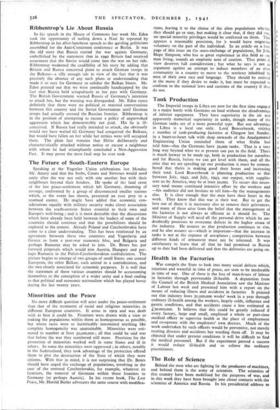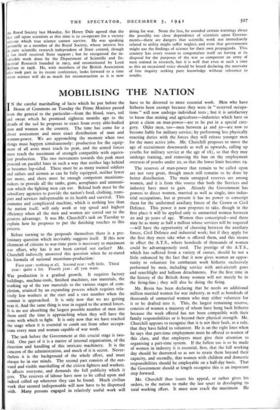The Role of Science
Behind the men who are fighting lie the producers' of machines, and behind them is the army of scientists. The scientists of this country have been mobilised for the purposes of war, and in this work they have been brought into closer contacts with the scientists of America and Russia. In his presidential address to the Royal Society last Monday, Sir Henry Dale agreed that the first call upon scientists at this time is to co-operate for a victory without which true science cannot survive. He was speaking primarily as a member of the Royal Society, whose interest lies hi pure scientific research independent of State control, though tt has itself received State support ; but he recognised the in- valuable work done by the Department of Scientific and In- dustrial Research founded in 1915, and reconstituted by Lord Balfour in 1928. He, with members of the British Association who took part in its recent conference, looks forward to a time when science will do as much for reconstruction as it is now
doing for war. None the less, he sounded certain warnings about the possibly too close dependence of scientists upon Govern- ments—there are dangers that scientific work not immediately related to utility might suffer neglect, and even that governments might use the findings of science for their own propaganda. This country has every reason to congratulate itself on having at its disposal for the purposes of the war so competent an army of men trained in research, but it is well that even at such a time as this an occasional voice should be heard declaring the necessity of free inquiry seeking pure knowledge without reference to results.























 Previous page
Previous page